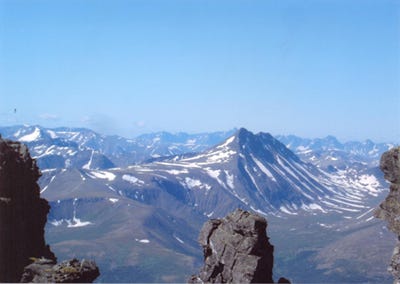Comparing: High Sunny Terrain
The Art of War 9:2.1-6 Armies are stronger on high ground and weaker on low.
This post continues our project explaining each stanza of Sun Tzu’s work. The English and Chinese quotes are from my award-winning translation, The Art of War and The Ancient Chinese Revealed. Basic translations are written from the narrow perspective of opposing armies. These articles focus on the more general application of this philosophy to all competition. Start here for the book’s opening lines.
The lessons examined in this article are from Section Two of Chapter 9 of The Art of War. This chapter is entitled Armed March. Its general topic is making competitive moves that advance our positions. It is one of the longest and most detailed chapters of the book.
This second section of this chapter describes different aspects of the four different types of terrain covered in the chapter’s first section. This stanza looks at mountains, that is, hierarchies. Moving through this terrain was explained in the earlier article on mountains/water. This article looks at comparing more permanent positions on these “mountains” or in these hierarchies.
In the lines below, we summarize the Chinese characters in their original order, each with a single English word shown in < > brackets. This transliteration of the Chinese is followed by an English sentence translation.
High But Sunny
The value of “high ground” is universally recognized today, but Sun Tzu saw more deeply into the issues of these “mountains.”
(All> <army> <good> <high> <and> <yet> <bad> <below>
Armies are stronger on high ground and weaker on low.
The context for this statement is the terrain that Sun Tzu calls “mountains.” On this tilted ground, the high ground is good while the low ground is bad. “High” and “low” have many different shades of meaning depending upon the situations to which they are applied. All hierarchies have high and low ground. This includes the mental hierarchies we use for comparison. Since everyone mentally rates everyone and everything in comparison, we all exist on both high and low ground depending on whose mental hierarchy we are talking about.
The most common social hierarchies are, of course, the different levels of management in business, government, and so on. These are pyramids where the levels of the hierarchy and positions with in it are official and recognized.
<Sufficient> <south,> <sunny> <hillside> <and> <yet> <deficient> <north> <shady> <hillside>
They are better camping on sunny southern hillsides than on shady northern ones.
In this line, Sun Tzu looks at another aspect of the “high ground” in these hierarchies. The “mountain” has both a sunny side and a shadowed side. Even at its highest levels, the mountain casts as shadow on itself. Since Sun Tzu was writing in the northern hemisphere, the sun came from the south.
Sunny and shady are opposites in many things. Visibility is the most obvious, but the difference in temperature is what concerns Sun Tzu. Mountains, because of their height, are colder places. Hierarchical organizations are also colder work environments compared with smaller, flatter organizations. In a similar way, the mental hierarchies on which people and things are compared also have different visibilities and temperatures.
<Provide> <for> <birth> <and> <yet> <position> <substantial>
Provide for your army’s health and place men correctly.
When we choose more permanent positions, we are looking for room for growth,<birth>. We are also looking for positions that can reward us enough in the future to support that growth. One advantage in hierarchical organizations is that they are usually large enough to provide all kinds of movement, both upwards and horizontally. If we are successful, our success itself can grow our positions within these hierarchies, winning more rewards.
This success in these hierarchies depends largely on our visibility. And it depends not only upon our position within the organization but also on our positions within the minds of the decision-makers who make decisions about us.
<Army> <without> <hundred> <diseases>
Your army will be free from disease.
Sun Tzu takes this sunny and shady idea into a new area: the health of those in these positions. This idea of health also works when we are talking about hierarchical organizations. Those areas that lack visibility and don’t get much attention are in danger of being seen as unhealthy and places that need trimming. Our positions in any hierarchy can get sick and die if we don’t get enough attention.
As customers, we also find ourselves in various hierarchies, the hierarchies of customers serviced by our suppliers. High is good and low is bad here as well. The lower we are in that hierarchy, the most likely we are to suffer because the products we prefer at not highly regarded by those who make them. However, even highly popular products can suffer from a lack of visibility and warmth. Unfashionable products are dropped and no longer supported in the same way that unpopular ones are.
Sun Tzu’s system is one that explores the various natural balances in nature.
<Correct> <meaning> <must> <victory>
Done correctly, this means victory.
Every advantage has a disadvantage. Those disadvantages are not always obvious. They arise out of a chain of cause and effect. Here, we see that shade makes cold places colder. The cold affects the health of people in these positions. These positions may be high, but they are not healthy.




Great post! This made me think of the 2 parties political system in the US as a kind of cycling between the sunny side and the shady side of the mountain :-)